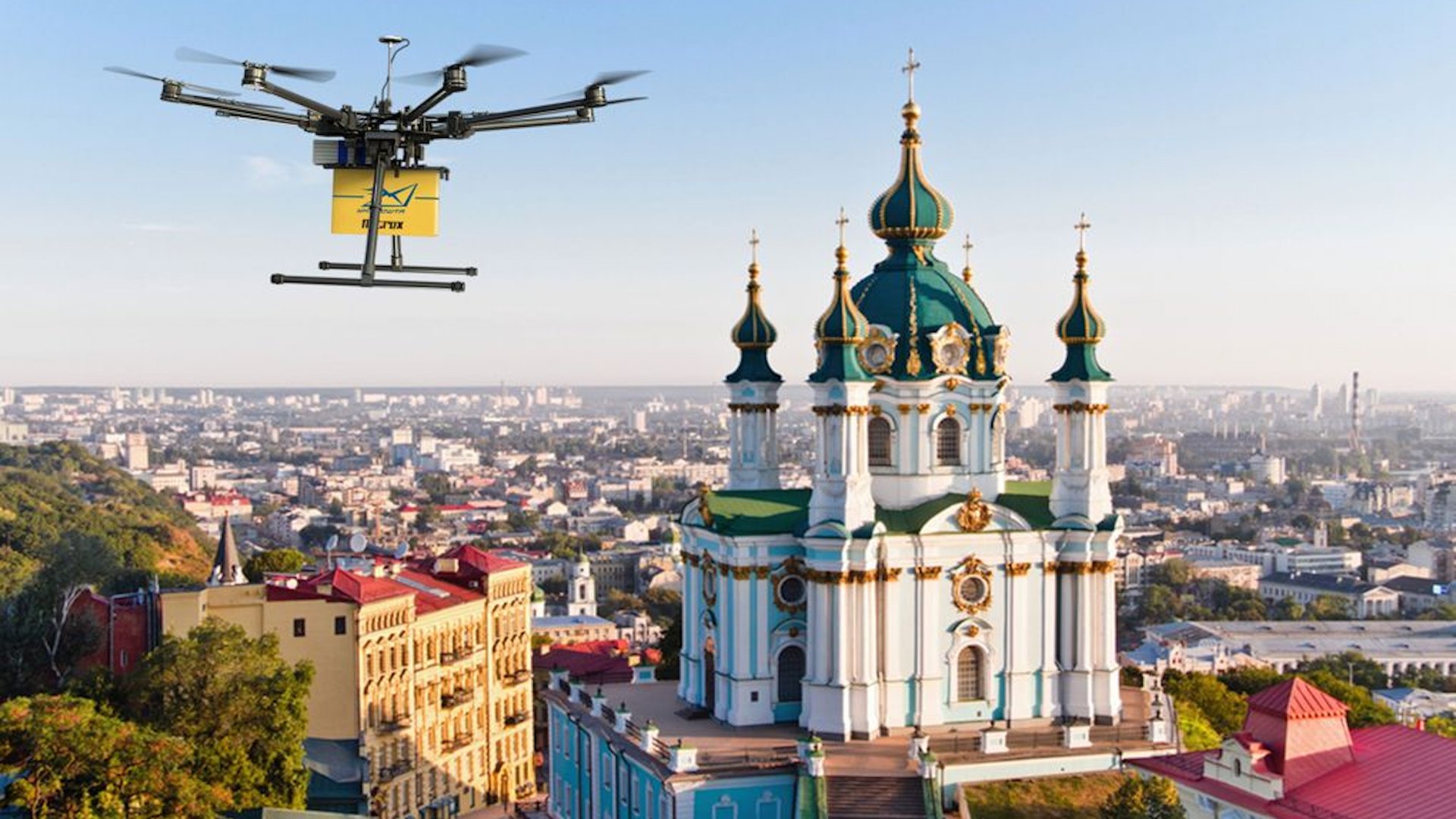

Unmanned aerial vehicles (UAVs) are becoming the go-to method to cut costs and the increase delivery efficiency. Israeli company Flytrex is eager to dominate this field and become the defacto leader in autonomous drone delivery systems, having just recently successfully merged with Ukrainian postal service UkrPoshta to create a pilot program to run tests.
“It’s one thing to design a nice drone to deliver goods, but it’s much more complicated to take charge of the whole system,” said Flytrex founder and CEO Yariv Bash, according to Israel21c. In order to take Flytrex to the next level—which would mean implementing its cloud-based back-end software into as many territories as possible—the current pilot program in the Ukraine serves as a necessary and informative testing ground. The software in question sends real-time information regarding weather, air traffic, and topographical to the delivery drones as to avoid collisions, reduce terrestrial traffic, and thereby even accidents and deaths.
Flytrex’s software “can reduce traffic accidents and save lives,” Bash said. The “idea is to offer better services for a lower rate. Drones do it faster and cheaper than any other means.” This is certainly true, as we just recently learned from a study that drone delivery is not only more efficient but far less harmful to the environment than traditional truck delivery.

According to Israel21c, the Flytrex drone software will delegate UAVs carrying around 6.5 pounds for as far as 14 miles round-trip, at speeds of up to 14 miles per hour. Apparently, delivery time will take less than half an hour from successful ordering to arrival at the destination. So if you’re having guests over for a dinner party and just ran out of napkins or so, this Flytrex software could really come in handy. Of course, the weight-limit of 6.5lbs seems a bit hindering, currently, but surely this will only improve over time.
Added to that, you could simply place several delivery requests if you need to place a large order of items. We recently reported on UNICEF and U.S. company Zipline testing out drone delivery for medical supplies, and it seems that Flytrex is running similar tests. According to Israel21c, Flytrex is working with a pharmaceutical company in Africa, as well, in addition to maybe working with Latin American banks to delivery sensitive materials from branch to branch. The software could obviously be used for dozens of disparate case-scenarios, and Bash is certainly aware of this. “For each project, we assess the situation and tailor the solution,” he said.
As the efforts of NASA and the FAA regarding implementing a finished, legal air-traffic management system will not be completed before 2020, Bash is looking toward Eastern Europe and Africa for his first Flytrex implementation, sometime in the third quarter of this year. He is very aware of legal repercussions and safety standards, stating that they’re “major concern to everyone involved. We don’t want a drone to crash into a 747 or to fall on someone’s head.”
In addition to that, Flytrex drones won’t be landing in front of your door, rather, the drones will hover around 50ft above the property and lower the package by cable. Bash explains, “If your dog runs towards the drone as it lands, who’s going to sue whom?” It’s a fair point, and in keeping with the safety concerns mentioned above. We’re really excited to see these things take off, and hope Flytrex manages to succeed in creating a working, real-world example of drone deliveries before the U.S. or Japan does. Competition is healthy, and drone deliveries becoming common is too exciting to pick nationalistic sides.